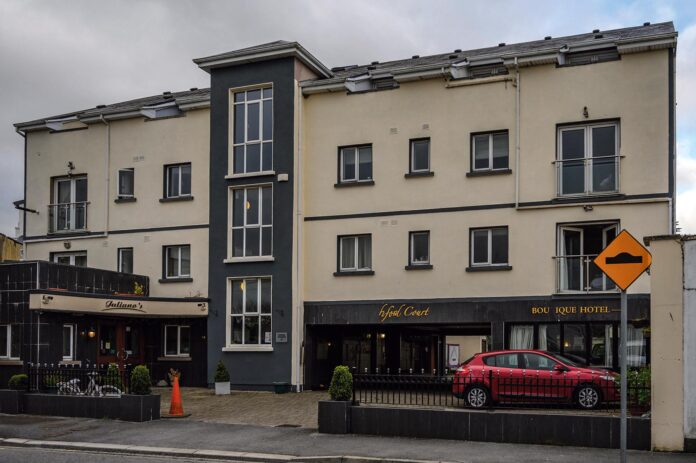CLARE’S top Garda has responded to concerns over the use of tourist facilities in Ennis to provide homeless accommodation. In recent weeks, the situation has been blamed for a spike in anti-social behaviour, including drug dealing, in residential areas close to the town centre.
The issue was raised at this week’s meeting of the Joint Policing Committee (JPC) by Deputy Joe Carey, who said the location and nature of the Ashford Court Hotel make it unsuitable as a homeless service.
“There is fall-out on the streets of residential areas nearby,” he said. “This has been raised by a number of people. I don’t believe that the tourist accommodation being used is adequate. The proper supports are not there, especially to support complex cases. There is spill-out on to the streets and residents have been contacting us as public representatives, to voice their concerns.
“We need a multi-agency approach to nip this in the bud and root out unsavoury behaviour.”
Cathaoirleach of Clare County Council, Mary Howard explained that she and the CEO of Mid-West Simon had sought views from those living close to the hotel. “We spent several hours speaking to residents nearby,” she said.
“Some were oblivious to the situation, others were very vocal. The issue here is that the location is completely unsuitable. There are older people living in the area. Many of them are living alone and this is completely the wrong place to provide homeless accommodation. In the Ennis Municipal District, we have had a huge number of representations.”
Councillor Howard also referred to a request from Ennis councillors for a JPC for the town. She said while members accepted that that wasn’t possible, local councillors would appreciate an in-camera briefing from Gardaí before their monthly meetings.
Councillor Pat Daly described the situation as “very, very serious”. “This is not the right place for a service like this,” he said.
“Unfortunately, there are one or two bad eggs in this facility and that’s all it takes to create a very difficult situation for local residents. What we need here are more Gardaí on the beat in this area and especially in the estates, because that’s where the problems are arising and that’s where drug dealing is going on.”
Responding to the concerns raised, Chief Superintendent Seán Colleran said Gardaí are conscious of the issues.
“We are fully aware of the spill-over from certain locations,” he said. “There have been a number of very serious incidents. We react and patrol these areas. We have, however, no control over housing other than to react to incidents when we are called upon. There is the bigger picture here of the suitability of the location. Gardaí have no involvement in that side of things.”
The chief superintendent said the force would consider any invitation to brief Ennis Municipal District members.
He also urged people to continue to come forward with their concerns, saying all reports would be responded to.
On the wider issue of drug dealing, Chief Superintendent Colleran told the meeting that ‘sale and supply’ detections had risen, in Clare, by 14% in the first quarter of 2021, when compared to the same period last year; going from 22 to 25.
“We have had activity-led arrests and detections,” he said. “Some of these have been very significant detections and our targeted operations are ongoing, in co-operation with Gardaí in Limerick, Tipperary and Galway.”
The chief superintendent also outlined how ‘simple possession’ detections have declined from 80 to 46 in the first quarter, year-on-year.
Chief Superintendent Colleran said sale and supply was the biggest concern for the force.
“We need to get to the people who are organising this, and we are gathering intelligence and evidence,” he said.
“Once we get a handle on them, we can deal with those who are at a much lower level.”
H also outlined how resources are directed at the issue.
“We have a full-time drugs unit, and that is augmented by other operational Garda units,” he explained. “All Gardai spend some time working in the area and become aware of what the issues are.”
Garda chief responds to homeless accommodation concerns


